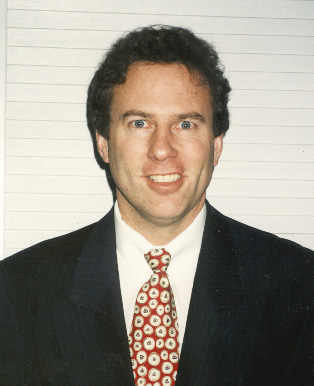Cable Trade Groups: Where, Who, What, and Why 2012?

The smarter way to stay on top of the multichannel video marketplace. Sign up below.
You are now subscribed
Your newsletter sign-up was successful
To truly understand an industry, one needs not only understand the people and the companies. One needs better to truly understand the parts played by a couple of other groups of important players.
One of those “groups” is the government.
The other is a group that usually puts itself in between the government and those people and those companies. That “other group” – also known as trade groups or trade associations that promote the best interests of those industries – is a critically important one for just about every major industry in the United States today.
The U.S. cable telecommunications industry is no different, in fact, one could argue that by the sheer volume of its groups alone, the U.S. cable industry builds those interests better than most.
This article is the first of several forthcoming stories about cable industry trade groups as a whole, and more specifically, what each one does and how it fits into the whole conceptually. Putting it all into perspective, the senior vice president of the National Cable Telecommunications Association, Rob Stoddard, summarizes, “What trades groups are relative [to you at the time] depends on what you do and where you play.”
The Public Policy Cable Trades
In all, the U.S. cable industry today is represented by 18 different national cable trade groups. In addition, there are about 40 state cable industry trade groups.
The smarter way to stay on top of the multichannel video marketplace. Sign up below.
At the head of the list in terms of prominence and notoriety, is probably the Washington, DC-HQd governmental lobbying group, the NCTA. The NCTA is staffed by a hundred employees, most of those in the nation’s capital. The NCTA tends to focus on its core constituency, which is the “larger” cable companies in the U.S. today, servicing scores of millions of subscribers. The NCTA exists based on corporate dues paid by its members, and focuses on public policy issues.
Another important national public policy trade group that serves most of the “smaller” cable companies is the Pittsburgh-based American Cable Association.ACA is staffed by about ten, is also supported by corporate dues, and does a remarkable job considering its limited resources. Its constituent base is about 850 total cable company members.
The 40 or so state groups also typically focus on public policy, and are supported by dues-paying corporate members.
The Business Cable Trades
A second major category of U.S. cable trade associations includes five that are also supported by the members’ payment of corporate dues, however, their mission is usually not a policy one, but rather to drive a particular business cause or purpose.
Louisville, Colo.-headquartered CableLabs is made up primarily of the larger of the hundreds of U.S. cable companies, including Comcast and Time Warner Cable. CableLabs’ focus is on the technical well-being and coordination within the industry.
The National Harbor, Md.-based Cable & Telecommunications Association for Marketing drives the marketing for its overall membership, made up of “multisystem operators, programmers, and suppliers of equipment services to the cable industry.”
The New York City-based Cable Advertising Bureau is centered on what it can do to improve the advertising prospects of its cable members. CAB, like CTAM, provides information and events for its membership, to enhance their business prospects and development.
Also under the subheading of “corporate dues-paying business cable trades” are the industry’s own information channels, known as C-SPAN, and the National Cable TV Cooperative. C-SPAN is centered in the Washington, DC area, while the NCTC hails from Lenaxa, Kan., where its core function is to assist the smaller cable operators of America in content negotiations, technology solutions, and marketing, billing, and employee training operations.
Trades Based on Individual Membership
For the five organizations that follow, their constituents comprise a vast array of niches, each based upon a foundation of individual membership. These are the Society of Cable Telecommunications Engineers, the Women In Cable Telecommunications, the National Association for Multi-Ethnicity in Communications, the Association of Cable Communicators, which focuses on public affairs, and cable’s human resources players, represented by the Cable & Telecommunications Human Resources Association.
Donation-Based Cable Trades
The final class of U.S. cable trade associations is comprised of six donation-based entities. These are The Denver University-based Cable Center, the CTAM Educational Foundation,the Emma Bowen Foundation, the NAMIC Foundation, the WICT Foundation, and The Kaitz Foundation, which became part of NCTA in 2004.
In summary, based upon your interest inside the cable industry, and based upon what you seek, the nearly 20 cable trade groups described above are likely to help you out (or at least tell you who can).
Jimmy Schaeffler is chairman and CSO of Carmel-by-the-Sea-based consultancy The Carmel Group (www.carmelgroup.com).
Jimmy Schaeffler is chairman and CSO of The Carmel Group, a nearly three-decades-old west coast-based telecom and entertainment consultancy founded in 1995.

